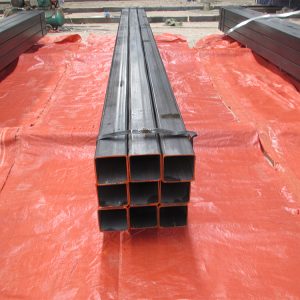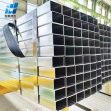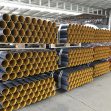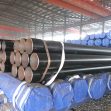How to use welded steel pipe properly in applications
In the modern times, welded steel pipes are manufactured in a wide variety of materials for different industrial applications. As most professional steel pipe manufacturers know, common ratings and features assigned to industrial pipes include maximum pressure, temperature range, flexible, lined, plated, flanged, insulated, and underground rated. The distinctive features of industrial pipes made of steel are high tensile property, flexible, e.g, can be designed and fabricated to any height and strength, are easy to install, possess structural reliability, easy to maintain and are corrosion resistant.

As a rule, each project is judged on its use of structural steel pipes from both an architectural and structural engineering perspective. It is believed that each project should be budgeted before your project starts. Welded steel pipe remains much cost effective compared with many other construction materials for over more than 30 years. Besides, welded steel pipe is considered an environment friendly building material in construction industry. Although the steel pipe price is not so stable in the market, this is still comparatively lower than the ready-mix concrete prices in the same period. Plus the fact that you don’t need highly skilled professionals to install your metal building at the site, the cost for the actual installation is definitely much lower.
In most cases, steel conduit provides very good protection to enclosed conductors from impact, moisture, and chemical vapors. For certain conditions, wiring systems in buildings may be subject to frequent alterations, and frequent wiring changes are made simpler and safer through the use of steel conduit, as existing conductors can be withdrawn and new conductors installed, with little disruption along the path of the conduit. As a rule, the conduit systems are classified by the wall thickness, mechanical stiffness, and material used to make the tubing. Wiring regulations for electrical equipment in hazardous areas may require particular types of welded steel pipes used to provide an approved installation. Conduit may be installed underground between buildings, structures, or devices to allow installation of power and communication cables. In applications such as residential construction, the high degree of physical damage protection may not be required, so the expense of steel conduit is not warranted. It cannot be denied that stranded or solid wire is usually pulled through conduit. The size of the wire may vary, depending on the amount of amperage needed to supply the point you are feeding, and this ultimately determines the size of the conduit that you will need to install.
Tel: +86 18202256900 Email: steel@fwssteel.com










